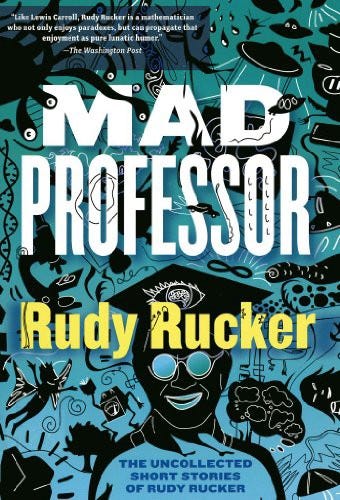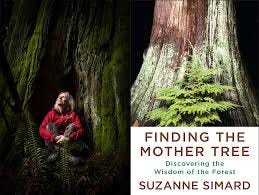Not all brands of panpsychism can be tied to spirituality, religion and/or politics. However, some (perhaps many) brands can be. This issue is complicated by those panpsychists who, in one breath, play down these connections; yet, in the very next breath, emphasise them. This essay, however, isn’t a critique of religion, spirituality or the politics of panpsychists. It’s simply an attempt to demonstrate these clear — indeed obvious — connections.

“Each object has a mind. Stars, hills, chairs, rocks, scraps of paper, flakes of skin, molecules — each of them possesses the same inner glow as a human, each of them has singular inner experiences and sensations.”
— Rudy Rucker
[See source here.]
“There are superficial cultural associations between panpsychism and spiritual stuff, but most of the people defending it are atheists [].”
— Philip Goff
[See source here.]
[Personally, I only know of a handful — or even less — of panpsychists who’ve used the word “atheist” to describe themselves. It also has to be remembered that many of those who class themselves as “spiritual” also frequently state that they don’t believe in the “traditional God”. Philip Goff himself makes much of this distinction.]
[Note: The word “craziness” — in the title — is borrowed from the panpsychist Philip Goff. He wrote an article called ‘Panpsychism Is Crazy, but It’s Also Most Probably True’, in which he compares panpsychism to Albert Einstein’s (supposedly) equally “crazy” (at least as seen at the time of its creation) Special Theory of Relativity. The very idea of a metaphysical thesis being “probably true” — as well as the comparisons with Einstein’s Relativity — won’t be discussed in the following essay.]
Introduction
It’s worth noting straight away that this essay only features two panpsychists who tie panpsychism to spiritual and political issues and positions. There are, of course, many others. For example, there are over 15 pages of search results (on Google) which contain numerous links to papers, articles and books which explicitly tie panpsychism to religion and spirituality (if in various ways). Hardly a single one of these links takes you to any critic of panpsychism attempting to (well) disingenuously connect panpsychism to spiritualism and religion. (That serious charge can, of course, be aimed at this essay.)
So readers can find Rupert Sheldrake tying panpsychism to what he himself calls “spirituality” (see here). A paper called ‘Panpsychism and Spiritual Flourishing’. Articles which tie panpsychism to “eastern mystics” (see here) and historical Native Americans (see here). Another article called ‘Why a Panpsychist Should Adopt Theism: God, Galileo, and Goff’. A book called Panpsychism and the Religious Attitude. Lots of pieces on “spiritual science”, which often mention panpsychism (see here). Finally, panpsychism has even morphed into an explicit spiritual position called panspiritism (see this article).
All that said, it’s not being argued here that all panpsychisms (i.e., in the plural) are, well, crazy or wacky. Some (though very few) panpsychists offer metaphysical theses which they argue for, and which can then be tackled by people who aren’t themselves panpsychists — even if, ultimately, they reject them.
Nonetheless, a philosopher like Philip Goff started off as simply offering technical papers and arguments (as expressed in academese in philosophy journals), but now he too is heading off in a crazy and/or wacky direction. And he’s doing so — at least partly — for the very same reasons as Rudy Rucker: politics, spirituality and ethics.
But, firstly, let’s concentrate on Rudy Rucker
Rudy Rucker

In his short essay, ‘Mind is a universally distributed quality’ (which can be found in the book What is Your Dangerous Idea?), Rudy Rucker (1946-) states that “[e]ach object has a mind”. He believes that “[s]tars, hills, chairs, rocks, scraps of paper, flakes of skin, molecules” all have minds.
Rucker isn’t simply arguing that all these objects have “experiences” or instantiate what some philosophers call “phenomenal properties”. And he certainly isn’t arguing that they only instantiate (as some other philosophers call it) “proto-experience”.
All that said, perhaps Rudy Rucker’s own panpsychism — particularly — is a bad target because I have a very strong feeling that he knows that his ideas are crazy-wacky and that his crazy-wackiness is part of the point, and, indeed, part of the appeal. After all, Rucker describes himself as a “cyberpunk” and he does seem to cultivate a certain image which appeals to New Agers, hippies, tribal environmentalists, etc.
[I’m not sure how cyberpunk and its “dystopian societies” square with Rucker’s panpsychist environmental ethics. However, I’m not an expert on cyberpunks.]
So Rucker’s crazy-wacky beliefs are tailor-made for a tiny niche of society. His books also sell very well (see here). And, as almost everyone knows, there’s nearly always a guaranteed (if sometimes small) market for sexy, titillating and crazy-wacky stuff.
All this means that perhaps many (or even most) of Rucker’s claims aren’t meant to be taken literally. Perhaps they’re meant to be taken poetically, politically or even spiritually.
It’s not a surprise, then, that Rucker never supplies any arguments for his panpsychism (there is a ‘nine-step formal proof of panpsychism’): he simply makes categorical (often oracular) statements. (He once strung them together and called them a “proof”.) And that ties in with all of what’s just been said. After all, arguments, data and facts may unweave Rucker’s rainbow or unspool his craziness-wackiness.
Indeed don’t we have the phrase “there are many ways of knowing” to deal with here? So perhaps Rucker’s very own way of knowing is different to my own way of knowing. It may also be different to the ways of knowing of most readers of this essay. That said, it’s of course the case that some people will be keen to point out (if not in these precise words) that one person’s crazy-wacky position is another person’s truth.
It must also be stated here that Rucker doesn’t seem to do — at least some of — his fellow panpsychists any favours. Or, at the very least, he doesn’t do the more philosophically rigorous and less flamboyant panpsychists any favours. (There aren’t many panpsychists who fit this description.)
In my view, then, spirituality, sexy philosophy and politics constitute the primary appeal of panpsychism when it comes to at least some (or even many) panpsychists and their followers. The hard analytical or philosophical work — which only exists in tiny academic niches — may well only arrive (as it were) after that fact.
The Spirituality and Politics of Rucker’s Panpsychism

It seems that radical environmentalism (perhaps alongside ecocentrism) and politics may be driving Rudy Rucker’s panpsychism. And now that seems to be the case with Philip Goff too. (See the last section.)
Both Rucker and Goff believe that upholding panpsychism will help the environment, our relationship with nature and the political state of society and the world generally.
Rucker himself is explicit about this when he wrote:
“If the rocks on my property have minds, I feel more respect for them in their natural state. If I feel myself among friends in the universe.”
As far as I know, Goff hasn’t delved into the afterlife yet. Rudy Rucker has.
Rucker offers us a spiritual, psychological and emotional take (actually, a conditional) on the afterlife when he stated the following:
“If my body will have a mind even after I’m dead, then death matters less to me.”
If Rucker’s previous speculations were true, then his position on his “mind” after his own death would also be true; or at least it could possibly be true. Thus, all this depends on the Rucker’s conjectures on panpsychism being true. (As stated in the opening square-bracketed note: metaphysical theories aren’t ideal candidates for truth.)
Yet Rucker’s panpsychist environmentalism and its lack of truth, fact or data may not matter to him. Thus, this is a reactive reply to Rucker’s general stance:
i) If Rudy Rucker’s panpsychism is all about his own emotional well-being (as well as about having a “positive attitude” to one’s environment),
ii) then it may not matter if panpsychism is actually true. (“The point is to change the world, not interpret it.”)
What seems to matter to Rucker are the personal and even collective results of believing — or simply advocating — panpsychism as a philosophical and political position.
So here’s another conditional to get that point across:
i) If the political, social and/or ethical consequences of believing in panpsychism are deemed to be positive,
ii) then perhaps the truth of panpsychism doesn’t matter.
Something similar to this ethical and pragmatic stance on truth has often been noted by philosophers and other commentators when it comes to religion. For example, many philosophers (such as the American philosopher William James) have talked about the “efficacy of religion”. (Sam Harris now talks about the efficacy of spirituality.) This has also been seen to be the stance of the “late Wittgenstein”; at least on certain readings. (Yet the man himself hardly wrote a word on the issue.)
Yet this fast-and-loose attitude to truth, fact and data would surely create a philosophical, scientific and ethical free-for-all if everyone adopted it. (Who knows, perhaps there are — relativist? — arguments which state that this would be a good thing too.) After all, I personally could believe that Rudy Rucker is a rock in order to bring it about that no one will take his views seriously. I could also believe that the Welsh are crabs in order to bring forward all sorts of negative political policies against Welsh people.
So why give Rudy Rucker free rein, but not other people with similarly absurd or extreme views? Some people may do so simply because they like — or empathise with — Rucker’s panpsychist philosophy. But is that a good enough reason? Some other people may also like my view that Rucker is a rock or someone else’s view that “alien lizards rule the world”.
In any case, let's move on to Philip Goff, who’s far less crazy-wacky than Rudy Rucker. He is, after all, a tenured professor who specialises in analytic philosophy.
Part Two: Philip Goff

“Other[s] will identify as ‘spiritual but not religious’. The purpose of this article is simply to point out that there is a third option that many are not aware of, and that some may find attractive: religion without belief.”
— Philip Goff (See source here.)
“I’m exploring the position that there is some kind of teleology or goal-based activity at the fundamental level of the universe [] Like isn’t the universe conscious itself?”
— Philip Goff (See source here.)
Professor Philip Goff uses the experiments and research on plants (carried out by the ecologists Professor Monica Gagliano and Professor Suzanne Simard) to advance his panpsychism. That is, he interprets that research and the experiments in various political and philosophical ways.

It can provisionally be accepted, then, that the experiments of Monica Gagliano and Suzanne Simard are scientifically kosher. And their papers, too, may well abound with mathematical equations and an infinity of footnotes and references. However, Goff’s political and philosophical interpretations of these experiments are what matters here.

That said, both of Monica Gagliano and Suzanne Simard themselves do foist philosophical and political baggage onto their own experiments and research. That philosophical and political baggage goes way beyond the actual science itself.
Indeed all this is a very good example of the common phenomenon of scientists — as well as philosophers and political activists — using scientific data or experiments as ammunition to advance their own political and/or spiritual beliefs, causes and goals.
Philip Goff’s Anthropomorphism

Philip Goff offers us some clear examples of anthropomorphism, which he uses to back up his prior panpsychism.
For example, Goff uses the words “associate”, “meaningless”, “preferential treatment”, “for their young”, “mother”, “kin”, “prejudice”, “reciprocal support”, “passing along” “egalitarian redistribution” and “dinnertime” when he refers to plants and their behaviour.
[The word “behaviour” is tricky when used in this context. For a start, the way that this word is sometimes used about plants — i.e., mainly by those who want to get a larger ethical, political or environmental point across — can also be used, with almost no change, about smoke alarms, light sensors and even wind turbines. However, all that can’t be tackled here.]
Perhaps the most extreme example of all is Goff’s use of the word “wisdom”. He uses that word when he says that “mother trees [] pass on their wisdom to the next generation”.
Now this is a professional analytic philosopher using the word “wisdom” about trees without even hinting at it being a metaphor or a poeticism… But that’s because he’s not using the word “wisdom” metaphorically or poetically.
Now it must be said that it’s of course the case that anthropomorphic words and phrases about plants or trees can be — and often are — used poetically and metaphorically, as well as to enable understanding. And, in that simple sense, such uses aren’t anthropomorphic in a literal sense at all. So this means that the least a philosopher or scientist can do is make it clear to his audience that he’s using such words (or phrases) in a poetic or metaphorical way. That said, in Goff’s case and as already said, it’s clear that he’s not using these word and phrases metaphorically, poetically or to enable understanding: he’s using them literally.
So take this passage as an example of this:
“[W]e now know that plants communicate, learn and remember. I can see no reason other than anthropic prejudice not to ascribe to them a conscious life of their own.”
It’s ironic that Goff mentions “anthropic prejudice” when he himself is clearly indulging in gross forms of anthropomorphism. (Many scientists, philosophers and laypersons have a problem with anthropomorphism even when it comes to animals, never mind plants.)
Readers may now wonder why anthropomorphism is seen to be somehow better than what Goff calls “anthropic prejudice” (i.e., anthropocentrism). Yet don’t both positions share the same (as it were) ánthrōpos toward plants? Thus, aren’t both positions equally suspect?
Of course Goff doesn’t believe he’s being anthropomorphic at all.
Goff uses anthropomorphic ways of speaking when his examples can even be made to work against his own political take on plants.
And that highlights a problem here.
As noted, Goff does indeed refer to scientific research on plants.
However, exactly the same data, evidence or experiment about — or on — trees and other plants (as well as animals) can be used as ammunition to advance just about any political position. (See underdetermination of theory by data/evidence.) Indeed, historically, this has often been the case. (Think about how some 19th-century Darwinists and 20th-century fascists relied on the animal world to advance their politics.) More specifically, Goff’s talk of “quid pro quo relationship[s]” in the plant world could be used to advance political positions which are diametrically opposed to his own.
Finally, on the words “wisdom”, “egalitarian”, etc. as used by Goff.
The simple argument here is that Goff is using these terms in ways that are massively at odds with how they’re used by laypersons when they refer to human individuals, institutions or societies. That is, he’s using them in his own panpsychist and political way. What’s more, such terms pick out behaviours which are displayed by every member of a plant species — at least in a given environment.
Yet that simply isn’t the case with human beings.
The word “wisdom”, for example, is always used in a relative or contextual way. That is, it’s rarely used to refer to every single human being in all circumstances dating back tens of thousands of years (as must be true of most plants). That is, person, institution or society x is (or was) wise in comparison with other persons, institutions or societies who or which were unwise.
As for Goff’s word “egalitarian”: if every plant of a given species is egalitarian, then no plant of that species is egalitarian. Like wisdom, a tree can only be egalitarian if there’s the possibility that this tree (or the entire species it belongs to) can choose not to be egalitarian. Again: the word “egalitarian” implies that an individual, institution or society chooses to be egalitarian. In other words, the word “egalitarian” has moral or normative content and also involves various degrees of choice. That isn’t the case with the plant species Goff artfully selects. According to Goff (though he doesn’t explicitly state this), every plant of that species — and perhaps all plants! — is wise and egalitarian.
The same is true of Goff’s use of the words “prejudice” and “reciprocal support” when he refers to plants.
Do these plants have the choice to actually embrace prejudice instead?
Do such plants ever go against the reciprocal support Goff highlights?
And say that there are indeed some exceptions (which is doubtful — unless in cases of genetic and/or environmental anomalies) displayed by the plants of a given species — would they be morally flawed to display prejudice or reject reciprocal support?
So what’s the point of using these anthropomorphic words at all?
Such words have almost zero connection to how they’re used by laypersons — and probably even by Goff himself when he uses them in all other (i.e., non-panpsychist and non-political) contexts.
So that point must be political, spiritual or ethical — probably all three. What’s more, it can be argued that, when it comes to panpsychists like Rudy Rucker and Philip Goff, it really doesn’t matter if their claims are true (or if the terms they use are conceptually confused or simply deceitful) because they believe that embracing this way of looking at plants — and much else besides — is a means to change the world in a better political direction.
Finally, these brands of panpsychism are obviously not science. And perhaps most of them aren’t even philosophy either. Instead, they’re a type of politics and/or ethics which simply uses the findings of both science and philosophy to help bring about certain very specific social and political ends.












No comments:
Post a Comment